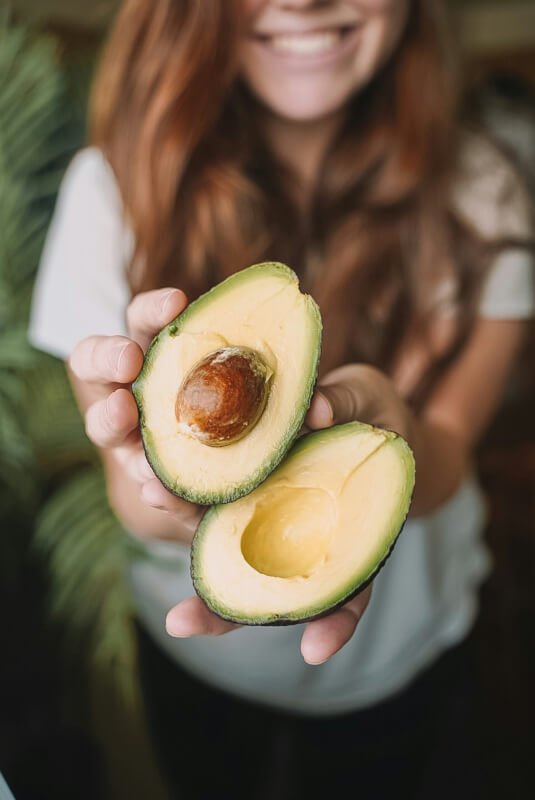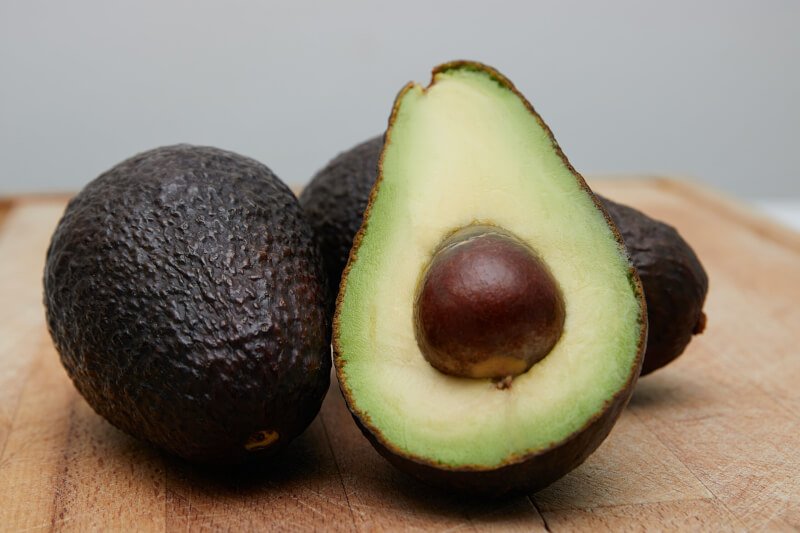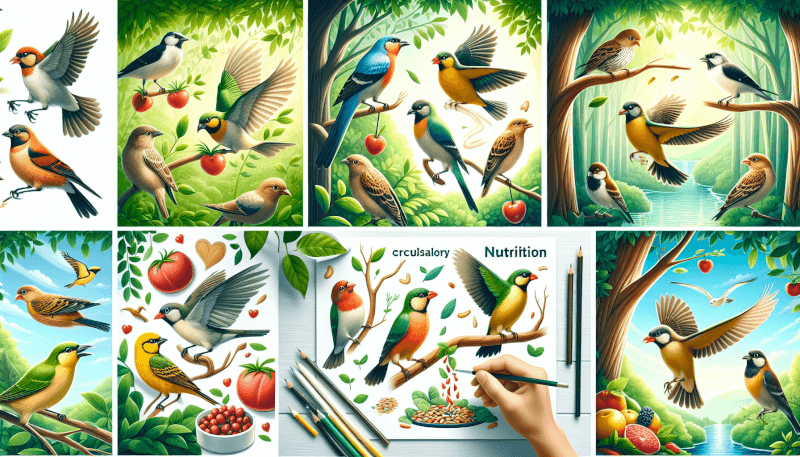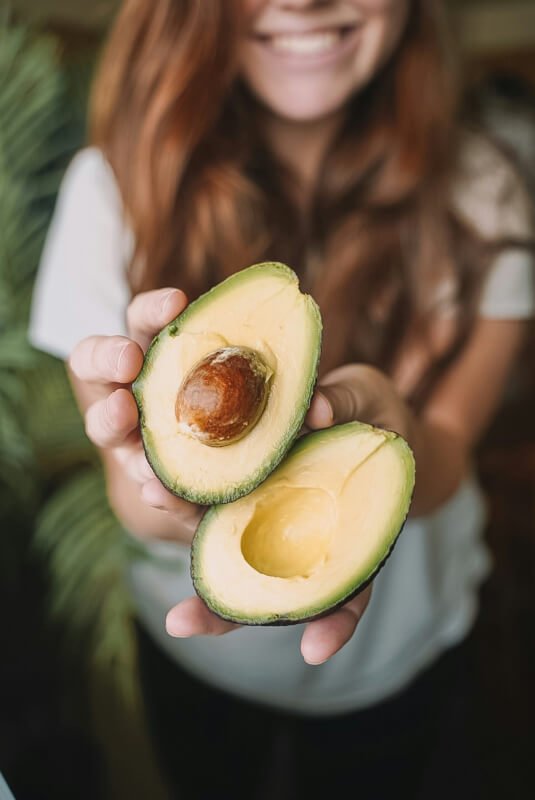Avian circulatory health is essential for the overall wellbeing of your feathered friends. It plays a crucial role in ensuring their internal systems function optimally and aids in preventing various health issues. In this article, you will discover some of the best ways to promote avian circulatory health, from providing a well-balanced diet to encouraging regular exercise. By implementing these methods, you can actively contribute to your bird’s vitality and longevity. So, let’s explore the key strategies to keep those avian hearts pumping strong!

Exercise for Avian Circulatory Health
Types of Exercises for Birds
Exercise plays a crucial role in maintaining the circulatory health of our avian friends. Just like humans, birds need regular physical activity to keep their hearts strong and maintain a healthy blood flow. There are various types of exercises that can benefit birds, including flight exercises, wing stretches, and climbing activities. Flight exercises, such as free flight or flying in a large aviary, allow birds to strengthen their wing muscles and improve their cardiovascular fitness. Wing stretches help to maintain the flexibility of the wings, preventing potential stiffness and promoting better blood circulation. Climbing activities, such as providing perches of varying heights, allow birds to exercise their leg muscles and further enhance their overall cardiovascular health.
Importance of Exercise for Birds
Regular exercise is vital for birds as it brings a multitude of benefits to their circulatory system. Engaging in physical activities increases birds’ heart rate, strengthening their heart muscles and overall cardiovascular system. Adequate exercise also helps to prevent complications such as blood clots and thrombosis, which can be fatal to birds. Additionally, exercise stimulates blood flow, ensuring that oxygen and essential nutrients reach all parts of the avian body efficiently. Moreover, exercise promotes proper digestion, which is essential for maintaining a healthy circulatory system. Overall, exercise is essential for promoting optimal avian circulatory health, minimizing the risk of cardiovascular diseases and supporting their overall well-being.
How to Encourage Exercise in Birds
Encouraging exercise in birds can be an enjoyable and rewarding experience for both the pet owner and the bird itself. Here are a few ways to promote exercise for our feathered friends:
Provide ample flight opportunities: If possible, allow your bird to engage in free flight within a safe, enclosed space. This not only provides an excellent cardiovascular workout but also mimics the natural behavior of birds.
Offer a variety of toys and perches: Providing a diverse range of toys and perches encourages birds to explore, climb, and play. Interactive toys that require physical engagement, such as puzzle toys or foraging toys, can be especially beneficial as they stimulate both the mind and body.
Schedule out-of-cage time: Allowing birds to have supervised out-of-cage time in a bird-safe area gives them the freedom to move around and explore. This time can be used for flying short distances, climbing, or simply stretching their wings.
Participate in training: Training sessions with your bird can provide not only mental stimulation but also physical exercise. Teach your bird tricks that involve movement, such as flying to specific targets or fetching objects, to promote physical activity.
Remember, always ensure the safety of your bird during exercise and never force them to engage in activities they are uncomfortable with. Gradually introduce new exercises and monitor your bird’s response to ensure they are enjoying the physical activity.
Proper Nutrition for Avian Circulatory Health
Balanced Diet for Birds
Proper nutrition is crucial for maintaining the circulatory health of birds. A balanced diet ensures that birds receive the necessary nutrients to support their cardiovascular system. A varied diet should consist of high-quality commercial bird food, supplemented with fresh fruits, vegetables, and occasional protein sources. Commercial bird foods are specifically formulated to meet the nutritional needs of birds, providing essential vitamins, minerals, and proteins. Fresh fruits and vegetables offer a range of antioxidants and fiber, promoting proper digestion and strengthening the avian circulatory system. Including protein sources such as cooked eggs, tofu, or lean meats in moderation provides important amino acids that aid in muscle development and overall cardiovascular health.
Essential Nutrients for Avian Circulatory Health
To maintain optimal avian circulatory health, certain nutrients should be prioritized in a bird’s diet. These include:
Omega-3 fatty acids: Found in sources such as cold-water fish, flaxseeds, and chia seeds, omega-3 fatty acids help reduce inflammation and promote cardiovascular health in birds.
Vitamin E: Vitamin E acts as an antioxidant, protecting cells from damage and supporting healthy blood circulation. Foods rich in vitamin E include spinach, almonds, and sunflower seeds.
Iron: Iron is essential for the production of hemoglobin, the molecule responsible for carrying oxygen in the blood. Green leafy vegetables, legumes, and fortified cereals are good sources of iron for birds.
Vitamin C: Known for its antioxidant properties, vitamin C helps maintain the health of blood vessels in birds. Citrus fruits, kiwi, and strawberries are excellent sources of this vitamin.
B vitamins: B vitamins, such as thiamine, riboflavin, and niacin, are vital for energy production and maintaining a healthy heart. These can be found in whole grains, lentils, and leafy greens.
Foods to Include in a Bird’s Diet
Including certain foods in a bird’s diet can significantly contribute to their circulatory health. Here are some examples of foods that are beneficial:
Dark, leafy greens: Spinach, kale, and Swiss chard are rich sources of iron, vitamin E, and B vitamins. These greens can be chopped or minced and added to the bird’s regular food.
Berries: Blueberries, strawberries, and raspberries are packed with antioxidants, vitamins, and fiber. They can be offered as a treat or mixed into the bird’s food.
Fish: Cold-water fish such as salmon and mackerel are excellent sources of omega-3 fatty acids. Cooked, boneless, and unsalted fish can be offered to birds in small portions.
Nuts and seeds: Almonds, sunflower seeds, and flaxseeds provide a variety of nutrients, including vitamin E and omega-3 fatty acids. These can be offered as treats or mixed into the bird’s food in moderation.
Remember to introduce new foods gradually, as sudden changes in diet may upset a bird’s digestive system. Providing a balanced and varied diet will ensure that birds receive the necessary nutrients to support their circulatory system and overall health.

Hydration for Avian Circulatory Health
Importance of Hydration for Birds
Proper hydration is essential for maintaining optimal avian circulatory health. Birds, like all living creatures, rely on water to carry out various physiological processes, including ensuring proper blood volume and circulation. Water is vital for maintaining electrolyte balance and preventing dehydration, which can lead to complications such as thickened blood, decreased blood flow, and poor oxygen delivery. Adequate hydration is particularly important for birds due to their high metabolic rate and the need for efficient blood circulation during activities such as flight. By providing birds with a sufficient amount of fresh water, we promote their overall well-being and support their circulatory system.
Providing Fresh Water for Birds
To ensure proper hydration for our avian companions, it is crucial to provide them with a fresh and clean water source at all times. Here are some tips to promote hydration for birds:
Clean water dishes daily: Birds are sensitive to water quality, so it is essential to clean their water dishes daily. Remove any leftover food or debris and wash the container with mild soap and warm water. Rinse thoroughly to remove any soap residue.
Use a wide and shallow dish: Birds feel more comfortable drinking from shallow water dishes. Opt for dishes that are wide enough for the bird’s beak to easily access the water, but not so deep that they could accidentally fall in.
Replace water frequently: Birds tend to be more enticed by fresh water. Change their water at least once or twice a day to ensure it remains clean and appealing. If the weather is particularly warm or humid, consider replacing the water more frequently to prevent bacterial growth.
Monitor water consumption: Pay attention to how much water your bird drinks regularly. Increased water consumption or sudden changes in drinking habits might indicate an underlying health issue. If you notice any concerning changes, consult a veterinarian.
Other Hydration Methods for Birds
While fresh water should be the primary source of hydration for birds, there are other ways to supplement their water intake and promote avian circulatory health:
Moist foods: Introducing moist foods, such as fresh fruits and vegetables, can provide additional hydration. Offer foods with high water content, such as cucumbers or watermelon, as part of a balanced diet.
Mist or shower baths: Certain bird species enjoy mist or shower baths. Lightly misting your bird with water or providing a shallow basin with clean water for them to bathe in not only promotes hydration but also aids in the molting process and maintains healthy feathers.
Remember, regular access to clean and fresh water is essential for birds. By providing them with adequate hydration, we can support their circulatory system and overall health.
Avoidance of Toxins for Avian Circulatory Health
Common Toxins for Birds
Creating a safe environment for our feathered companions is crucial for their overall well-being, including their circulatory health. Birds are particularly sensitive to various toxins, and exposure to these substances can have detrimental effects on their circulatory system, leading to serious health conditions. Some common toxins harmful to birds include:
Tobacco smoke: Secondhand smoke is harmful to birds and can significantly impact their respiratory and circulatory health. Avoid smoking in the same room or area where birds are present.
Household chemicals: Many common household chemicals, such as cleaning products, air fresheners, and insecticides, contain toxins that can be harmful to birds. Keep these chemicals securely stored in an area inaccessible to birds and use bird-safe alternatives whenever possible.
Non-stick cookware and appliances: When heated, non-stick cookware and appliances can release toxic fumes that are harmful to birds. Opt for cookware and appliances without non-stick coatings or use them in a well-ventilated area away from birds.
Certain plants: Some houseplants, such as lilies, philodendrons, and azaleas, are toxic to birds if ingested. Ensure that any plants in your bird’s environment are safe for avian companions and keep them out of reach.
Creating a Safe Environment for Birds
To ensure the well-being of our feathered friends, it is essential to create a safe and toxin-free environment for them. Here are some measures to consider:
Bird-proof your home: Before allowing birds to have free access to your home, carefully inspect the area for potential hazards. Cover or secure electrical cords, remove toxic plants, and ensure windows and doors are closed or have protective screens.
Use bird-safe cleaning products: Many cleaning products contain harmful chemicals that can affect birds’ health. Look for bird-safe alternatives or opt for mild, natural cleaning solutions.
Properly ventilate the living area: Good air circulation is crucial for maintaining a safe environment for birds. Use fans or open windows and doors to ensure fresh air is circulating throughout the space.
Beware of fumes and aerosols: Be cautious about using aerosol sprays and products with strong fumes around birds. These substances can be harmful to their respiratory and circulatory systems. If you must use such products, ensure birds are in a well-ventilated area, or temporarily move them to another room.
Replacing Toxic Household Items
To further promote avian circulatory health, consider replacing toxic household items with bird-safe alternatives. Here are a few examples:
Bird-safe cookware: Opt for stainless steel, cast iron, or ceramic cookware instead of non-stick options.
Natural cleaning solutions: Use vinegar, baking soda, or mild dish soap to create bird-safe cleaning solutions. Avoid using bleach or harsh chemical-based cleaners.
Bird-friendly plants: Replace toxic houseplants with bird-safe alternatives such as spider plants, Boston ferns, or African violets.
By removing potential toxins and creating a safe environment, we can protect our birds’ circulatory health and promote their overall well-being.

Managing Stress for Avian Circulatory Health
Recognizing Stress in Birds
Stress can have a significant impact on the circulatory health of birds, just as it does on humans. Recognizing signs of stress in birds can help us identify potential issues and take steps towards reducing stress levels. Common signs of stress in birds may include:
Excessive feather plucking or chewing: Stress can manifest in destructive behaviors such as excessive preening or feather plucking. If birds are constantly engaging in these behaviors, it may indicate higher stress levels.
Loss of appetite: Birds experiencing stress may show a decrease in appetite and a reluctance to eat. This change in eating behavior can lead to nutritional deficiencies and potential circulatory health problems.
Aggression or lethargy: Stress can trigger both aggressive and lethargic behaviors in birds. They may become territorial, more prone to biting, or exhibit a lack of energy and interest in their surroundings.
Vocalization changes: Birds under stress may vocalize more or less frequently than usual. They may also exhibit vocalization patterns that are different from their normal behaviors.
Reducing Stress in Birds
Reducing stress in birds is essential for maintaining their overall well-being and supporting their circulatory health. Here are some strategies to help minimize stress levels:
Provide a stable and secure environment: Ensure that your bird’s living space is free from potential stressors, such as loud noises, sudden temperature changes, or excessive handling. Consistency and a sense of security in their surroundings go a long way in reducing stress.
Enrichment and mental stimulation: Engaging birds in stimulating activities, such as puzzle toys, foraging opportunities, and interactive play sessions, can provide mental enrichment and divert their attention from stressful situations.
Social interaction and companionship: Birds are social creatures and benefit greatly from positive social interactions. Spend quality time with your bird, offering reassurance and positive reinforcement to build trust and reduce stress.
Adequate rest and sleep: Just like humans, birds require sufficient rest for their overall well-being. Provide a comfortable sleeping area that is secluded, quiet, and away from disturbances to promote quality rest.
Creating a Calm Environment for Birds
Creating a calm environment is vital for reducing stress and promoting avian circulatory health. Here are some additional measures to help create a serene atmosphere for birds:
Establish a routine: Birds thrive in a predictable and consistent routine. Establish regular feeding times, out-of-cage time, and sleep schedules to provide a sense of stability and reduce stress levels.
Use positive reinforcement: Positive reinforcement training techniques can help build a strong bond between you and your bird. Reward desired behaviors, such as stepping onto your hand or playing with toys, to create a positive and stress-free environment.
Limit exposure to stressful situations: Birds are sensitive to changes in their environment. Limit exposure to potentially stressful situations, such as loud parties or construction noises, to prevent unnecessary stress.
By recognizing and actively reducing stress levels in birds, we can support their circulatory health and overall well-being. A calm and stress-free environment promotes a healthy cardiovascular system and ensures a happy, thriving bird.
Preventing Infections for Avian Circulatory Health
Understanding Common Bird Infections
Preventing infections is crucial for maintaining optimal avian circulatory health. Birds are susceptible to various infections, and if left untreated, these can have severe consequences for their overall well-being. Understanding common bird infections can help us take preventative measures to protect their circulatory system. Some common infections in birds include:
Aspergillosis: Caused by the Aspergillus fungus, this respiratory infection can spread to the circulatory system, leading to poor oxygenation and impaired cardiovascular function in birds.
Avian influenza: This viral infection often affects birds and can lead to severe respiratory distress, affecting the circulatory system due to reduced oxygen intake.
Psittacosis: Also known as parrot fever, psittacosis is a bacterial infection that affects the respiratory system in birds. Severe cases can lead to systemic infection, affecting the circulatory system as well.
Salmonellosis: Caused by the Salmonella bacteria, this infection can affect multiple organ systems, including the circulatory system, and may lead to septicemia if left untreated.
Promoting Good Hygiene for Birds
Maintaining good hygiene practices is essential for preventing infections in birds and promoting their circulatory health. Here are some tips for promoting good hygiene:
Clean and disinfect bird cages regularly: Bird cages should be cleaned thoroughly on a regular basis to prevent the growth of bacteria and fungi. Remove any waste, uneaten food, or soiled bedding promptly.
Wash hands before and after handling birds: Practicing proper hand hygiene is crucial to prevent the transmission of bacteria or viruses between birds and humans. Wash your hands with soap and water for at least 20 seconds before and after handling birds.
Avoid exposing birds to sick individuals: If you have other birds that show signs of illness, keep them separated from healthy birds to prevent the spread of infections. Quarantine new birds before introducing them to existing flocks to minimize the risk of transmitting diseases.
Provide a clean and dry living environment: Ensure that the bird’s living area is clean and free from excessive moisture, as damp environments can promote the growth of bacteria and fungi. Regularly inspect bedding materials, perches, and toys for any signs of contamination or mold growth.
Vaccinations and Regular Check-ups
In addition to good hygiene practices, vaccinations and regular check-ups play a vital role in preventing infections and maintaining avian circulatory health. Consult with a veterinarian experienced in avian care to determine the appropriate vaccination schedule for your bird. Vaccinations can help protect against certain diseases and prevent their spread. Regular check-ups allow for early detection of any potential health concerns, ensuring timely treatment and preventive measures.
By understanding common bird infections, practicing good hygiene, and ensuring regular vet check-ups, we can take proactive steps to prevent infections and maintain optimal avian circulatory health.

Maintaining Optimal Weight for Avian Circulatory Health
Weight Management for Birds
Maintaining an optimal weight is crucial for avian circulatory health. Excess weight can lead to numerous health complications, including cardiovascular problems, reduced mobility, and a decreased quality of life for birds. Proper weight management involves monitoring a bird’s body condition and taking steps to prevent obesity.
Avoiding Obesity in Birds
Obesity is a common issue among pet birds and can significantly impact their circulatory health. Here are some strategies to help avoid obesity in birds:
Appropriate portion sizes: Ensure that you are providing your bird with appropriate portion sizes of food. Consult with a veterinarian or avian nutritionist to determine the correct amount and frequency of feeding based on your bird’s species, age, and activity level.
Limit high-fat and high-sugar foods: Foods high in fat and sugar can contribute to weight gain in birds. Limit the amount of seeds, nuts, and sugary treats in your bird’s diet, and instead, focus on providing a balanced and nutritious diet of pellets, fresh fruits, and vegetables.
Encourage physical activity: Regular exercise, such as flight exercises, climbing, or interactive play sessions, helps birds burn calories and maintain a healthy weight. Provide opportunities for physical activity and mental stimulation to keep your bird active and engaged.
Monitoring Bird’s Body Condition
Monitoring a bird’s body condition is essential for maintaining optimal weight and circulatory health. Here are some guidelines to help assess your bird’s body condition:
Feel the breastbone: Gently run your fingers over the bird’s breastbone. In a healthy weight bird, the breastbone should not be overly prominent or easily felt, but it should also not be completely covered by fat.
Evaluate the abdomen: Look at the bird’s abdomen from the side. There should be a slight tuck or slender curve in the abdomen towards the tail. Excessive bulging or distention may indicate overweight or obesity.
Observe overall body shape: Assess the bird’s general body shape. A healthy bird should have a streamlined shape without significant fat deposits around the chest, wings, or tail.
By monitoring your bird’s body condition regularly, adjusting portion sizes and diet accordingly, and encouraging physical activity, you can help maintain optimal weight and circulatory health for your feathered companion.
Providing Adequate Rest for Avian Circulatory Health
Importance of Rest for Birds
Adequate rest is essential for maintaining optimal avian circulatory health. Just like humans, birds require quality sleep and rest to support their overall well-being. During rest, the avian circulatory system can repair and replenish itself, ensuring optimal functioning during wakefulness. Sufficient rest promotes a strong cardiovascular system, prevents fatigue, and supports overall health.
Creating a Comfortable Sleep Environment
Creating a comfortable sleep environment is crucial for ensuring birds get the rest they need. Here are some tips to consider when setting up a sleep area for your bird:
Dark and quiet surroundings: Birds require a dark and quiet environment to promote quality sleep. Cover the cage or provide a separate sleeping area that is secluded from noise and distractions.
Consistent sleeping schedule: Establish a consistent sleeping schedule for your bird by ensuring they have a quiet and uninterrupted period of rest every night. Mimicking natural day-night cycles will help regulate their internal clock and optimize circulatory health.
Comfortable sleeping perch: Provide a comfortable sleeping perch, such as a natural wooden perch or a soft cotton rope perch, to ensure relaxation during rest. Birds should be able to stretch out their wings comfortably while perching.
Temperature regulation: Maintain a suitable temperature in the sleep area, neither too hot nor too cold. Extreme temperatures can disrupt sleep and affect circulatory health. Provide a well-ventilated space with appropriate temperature and airflow.
Avoiding Disturbances during Rest
Minimizing disturbances during rest periods is vital for supporting avian circulatory health. Here are some practices to avoid disturbing your bird during their sleep:
Quiet activities during rest: Avoid activities that may create loud noises or sudden movements near the bird’s sleep area. Keep the environment around the bird calm and peaceful during rest periods.
Consistency in the environment: Keep the sleep area as consistent as possible to prevent disruptions. Avoid moving the cage or making significant changes in the surrounding environment, as these changes can disturb sleep patterns and circulatory health.
Dim the lights: Lower the ambient light in the area where the bird sleeps to promote a dim and relaxing environment. Avoid using bright or artificial lights that can interfere with their sleep-wake cycles.
By recognizing the importance of rest, creating a comfortable sleep environment, and avoiding disturbances, we can support avian circulatory health and promote overall well-being for our feathered friends.

Environmental Enrichment for Avian Circulatory Health
Stimulating Activities for Birds
Environmental enrichment is crucial for promoting avian circulatory health and overall well-being. Stimulating activities keep birds mentally and physically engaged, preventing boredom, and supporting a healthy circulatory system. Here are some stimulating activities for birds:
Puzzle toys: Provide your bird with puzzle toys that require problem-solving skills. These toys stimulate mental activity and encourage birds to engage their minds while manipulating the toys to access treats or rewards.
Foraging opportunities: Incorporate foraging opportunities into your bird’s daily routine. Hide treats or food in various locations within their living space, encouraging them to explore, search, and problem-solve.
Play sessions: Engage in interactive play sessions with your bird regularly. This can include tossing toys for them to fetch, playing with interactive toys together, or teaching them new tricks that require physical and mental engagement.
Rotating toys: Introduce new toys and rotate them periodically to maintain your bird’s interest. Birds can quickly become bored with repetitive stimuli, so providing a variety of toys and changing them regularly helps keep their minds stimulated.
Providing Mental Stimulation
Mental stimulation is essential for avian circulatory health, as it keeps birds engaged, active, and mentally sharp. Here are some strategies to provide mental stimulation for your bird:
Training sessions: Train your bird to perform new tricks or commands using positive reinforcement techniques. This mental engagement during training sessions helps stimulate their mind and promotes a strong circulatory system.
Social interaction: Interact and communicate with your bird regularly. Birds are highly social animals and enjoy positive interactions with their human companions. Speak to them, sing songs, or provide opportunities for socialization with other compatible birds.
Environmental variety: Introduce new elements to your bird’s living environment regularly. Rearrange perches, rotate toys, or add new objects for them to investigate. This variety provides mental stimulation and prevents monotony.
Playful challenges: Create playful challenges for your bird by offering toys with different textures, sounds, or shapes. Slightly increasing the difficulty level of the toys or activities can stimulate problem-solving skills and mental agility.
Creating a Bird-Friendly Environment
Creating a bird-friendly environment is essential for promoting avian circulatory health. Here are some additional measures to consider:
Natural sunlight and fresh air: Allow access to natural sunlight and fresh air, as these are crucial for a bird’s well-being. Ensure that their living area is near a window or utilize full-spectrum lighting to mimic natural sunlight.
Mimic natural behaviors: Encourage natural bird behaviors by providing opportunities for flight, climbing, and perching at varying heights. Mimic their natural habitat by including branches, ropes, or ladders for them to explore and engage with.
Visual stimulation: Hang bird-safe mirrors or provide a birdbath with a water feature to provide visual stimulation. Birds enjoy seeing their reflection and being able to bathe, promoting both mental and physical activity.
Auditory enrichment: Play soft, soothing music or nature sounds in the background to provide auditory stimulation. Birds enjoy listening to different sounds, which can help keep them entertained and mentally engaged.
By providing stimulating activities, mental engagement, and creating a bird-friendly environment, we can support avian circulatory health, prevent boredom, and ensure our feathered friends have a fulfilling and enriching life.
Monitoring and Early Detection for Avian Circulatory Health
Recognizing Signs of Circulatory Issues
Regular monitoring and early detection of circulatory issues are crucial for maintaining optimal avian health. Being aware of the signs and symptoms of circulatory problems allows us to seek prompt veterinary care. Common signs of circulatory issues in birds include:
Rapid and labored breathing: Difficult or rapid breathing can indicate a compromised circulatory system. Birds may display increased effort in breathing, bob their tails, or have visible movement of their abdominal muscles while breathing.
Cyanosis: Cyanosis refers to the bluish discoloration of the bird’s beak, feet, or limbs. It indicates poor oxygenation in the blood, often associated with circulatory or respiratory problems.
Weakness or lethargy: Birds with circulatory issues may exhibit general weakness or listlessness. They may be less active, demonstrate a reduced appetite, or have difficulty maintaining balance.
Abnormal heart rate or rhythm: Irregular heart rhythms, excessively fast or slow heart rates, or noticeable pulsations around the bird’s body can indicate underlying circulatory problems.
Regular Health Check-ups for Birds
Regular health check-ups are essential for monitoring avian circulatory health and detecting potential issues early on. A qualified avian veterinarian can perform comprehensive exams, including auscultation (listening to the bird’s heart and lungs), blood work, and imaging if necessary. Routine examinations allow for proactive management and intervention when needed.
Seeking Veterinary Advice
If you notice any signs of circulatory issues or have concerns about your bird’s health, it is important to seek veterinary advice promptly. An avian veterinarian can provide a thorough evaluation, diagnose any circulatory problems, and prescribe appropriate treatment options. Remember that early intervention is crucial for successful management of circulatory issues in birds.
By recognizing the signs of circulatory issues, scheduling regular check-ups, and seeking veterinary advice when needed, we can effectively monitor avian circulatory health and ensure early detection of any potential problems.
In conclusion, promoting avian circulatory health requires attention to various aspects of a bird’s lifestyle. Regular exercise, a balanced diet, proper hydration, avoidance of toxins, stress reduction, infection prevention, weight management, rest, environmental enrichment, and monitoring play integral roles in maintaining optimal avian circulatory health. By implementing these measures and seeking veterinary advice when necessary, we can help our feathered companions live long, healthy lives with strong circulatory systems. Remember, a happy and healthy bird is a sight to behold!


